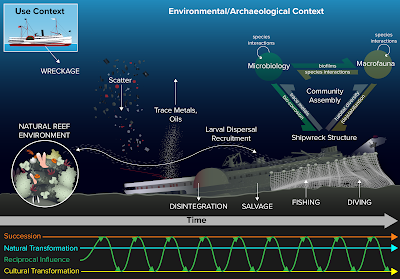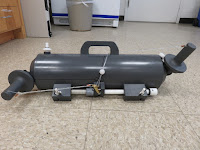Maritime Heritage Ecology

Friends, I am proud to introduce you to a new term: Maritime Heritage Ecology . This phrase refers to the fusion of biology and archaeology that is necessary for understanding the processes that shape underwater cultural heritage. As many of you know, I've studied shipwrecks since my PhD. They're island-like systems that aren't supposed to exist, so they present a number of extremely interesting biological questions. But shipwrecks aren't just habitats - they're also historical and cultural resources. They undergo their own transformations, as wood degrades, fishing gear gets entangled, artifacts get scattered, and metal corrodes. Shipwrecks are incredibly dynamic. Moreover, shipwrecks are not the only type of cultural heritage that lands in the ocean. There are cars, planes, and tanks. There are structures like lighthouses, wharfs, ancient villages, and middens. There are artifacts like amphoras, statues, and weapons. All of them tell the story of human interacti
